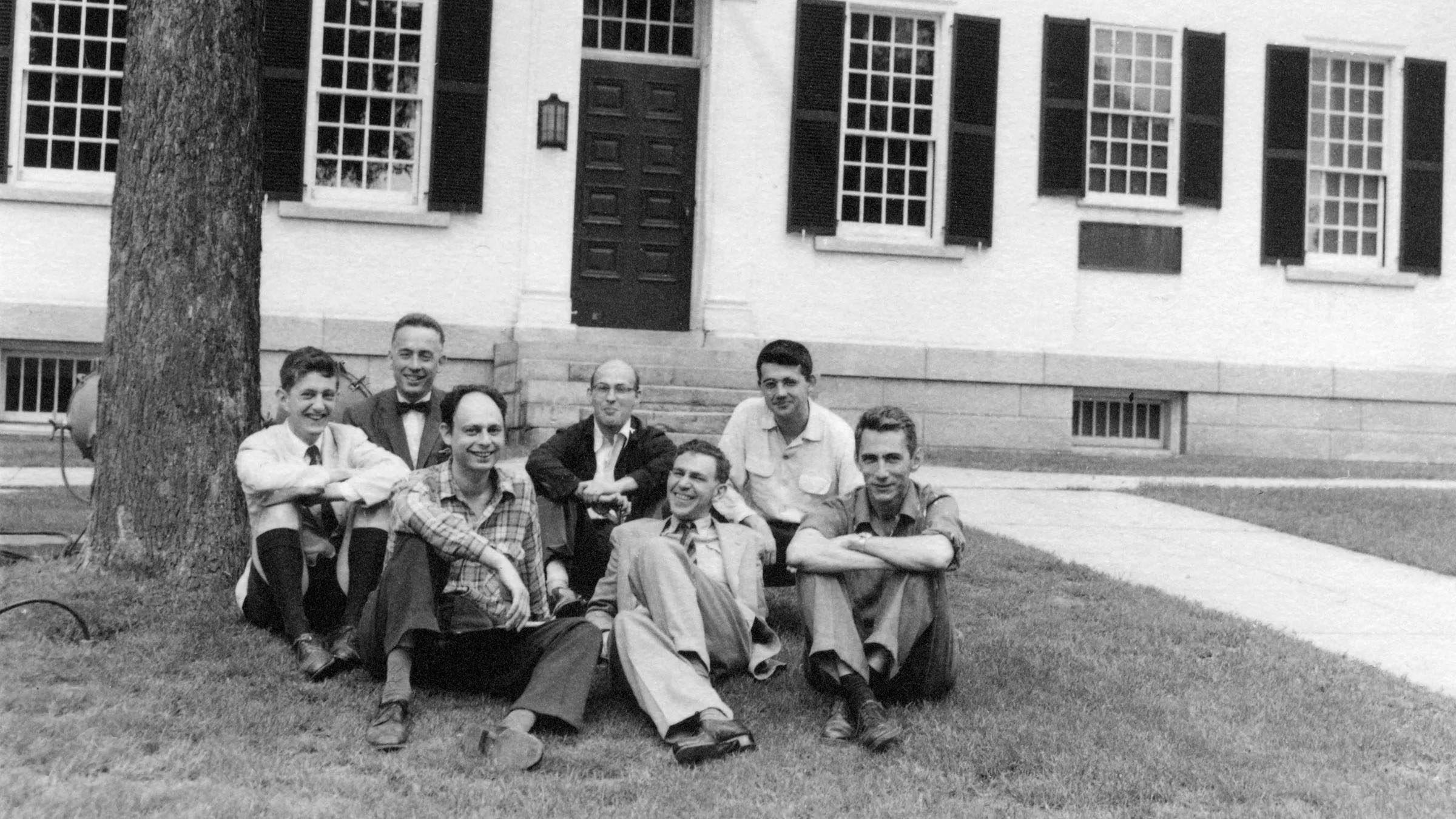Dartmouth Workshop

The Artificial Intelligence group outside the left-hand side door of Dartmouth Hall. Dartmouth Summer Research Project on Artificial Intelligence, held from June 18 through August 17, 1956. Back row from left to right: Oliver Selfridge, Nathaniel Rochester, Marvin Minsky, and John McCarthy. Front row, left to right: Ray Solomonoff, Peter Milner, Claude Shannon. Photo by Nathaniel Rochester.
The Dartmouth Workshop, formally known as the Dartmouth Workshop on Artificial Intelligence, was a seminal event in the history of artificial intelligence (AI). It took place over the summer of 1956 at Dartmouth College in Hanover, New Hampshire. The workshop was organized by John McCarthy, Marvin Minsky, Nathaniel Rochester, and Claude Shannon, who were leading figures in computer science and cognitive psychology at the time. The workshop is often credited with coining the term "Artificial Intelligence" and marking the birth of AI as an academic discipline.
The primary objective of the workshop was to explore the possibilities of building machines that could simulate human intelligence. The organizers believed that "every aspect of learning or any other feature of intelligence can in principle be so precisely described that a machine can be made to simulate it." The workshop aimed to bring together researchers from various disciplines to collaborate on problems like natural language processing, problem-solving, learning, and perception.
Although the Dartmouth Workshop did not produce groundbreaking technologies or solutions immediately, it had a profound and lasting impact on the field of AI. It helped establish AI as a legitimate area of research and development, setting the stage for future funding and academic programs dedicated to AI. The workshop also fostered collaborations and relationships among researchers that would go on to become leaders in the field, including Allen Newell and Herbert A. Simon, who were also participants.
The workshop's ambitious goals, such as building computer programs that could mimic human intelligence in a matter of weeks or months, were not realized as quickly as the organizers had hoped. However, the event did succeed in galvanizing interest in AI research and in setting the research agenda for the decades that followed.
The Dartmouth Workshop was a pivotal event in the history of artificial intelligence. It brought together key figures in the field, set ambitious goals for AI research, and helped establish AI as a legitimate academic discipline. While not all of its lofty objectives were immediately achieved, the workshop laid the foundation for the development of AI and influenced the direction of the field for years to come.